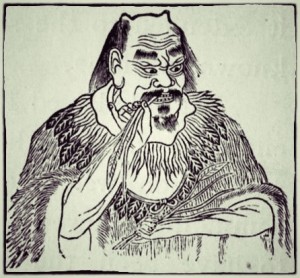The Basics of a Healthy Diet
- Eat lots of vegetables & fruits.
- Eat food as close to its natural state as possible.
- Eat when you are hungry, until you are seven tenths full.
- Eat according to your constitution and condition.
- Avoid refined foods.
- Avoid anything that was ‘invented’.
- Be mindful.
Issues with the Standard American Diet
- Americans eat huge quantities of poor quality fats.
- The SAD contains many extremely refined and man-made ingredients.
- Most Americans eat few vegetables, fruits, or whole grains.
- Rates of cancer, heart disease, diabetes, and obesity are very high in the United States especially when compared with other countries.
The Continuity of Food and Medicine
In Chinese Medicine, there is no clear boundary between food and herb, or diet and medicine. In many cases, foods are prescribed much the way herbs are prescribed. Likewise, many herbs are also used for culinary purposes.
Nutrition in Classical Chinese Texts
The foundational text of Chinese medicine, the Yellow Emperor’s Classic (Huang Di Nei Jing) emphasizes practical lifestyle changes and preventative measures to ensure health. This book espouses moderation and healthly nutrition to promote health and longevity.
The first recorded Materia Medica was the Divine Farmer’s Classic (Shen Nong Ben Cao Jing), which examined medicinal substances. Many of the herbs listed in this book are also foods and spices.
General Principles
- Eat according to the seasons. Choose foods that are naturally ripe and in season.
- Eat according to your location. Choose foods that can be grown locally, and do not need to be brought in from other areas.
- Eat according to your constitution.
- One should be able to maintain health by eating well. Medicines are inherently stronger and harder on the body, so they should only be used when disease is already present.
- The act of preparing foods can also be considered therapeutic. It helps to smooth digestion and allow food to be assimilated more efficiently.
- The body as a whole reflects the universe as a whole. One should consume a variety to reflect the variety in the universe.
- Balance between flavors ensures balance in the body. An excess of any one flavor can lead to imbalance and health problems.
In Harmony with the Seasons
In the spring, eat light, dispersing foods, such as sprouts, new leaves, green tea, and leafy green vegetables.
In the Summer, consume light, bland and easy to digest foods. Eat a lot of fresh and lightly cooked vegetables and fruits, and little meat and fat. Add some bitter, heat-clearing foods.
In the autumn, foods should moisten the Lung, such as pear and daikon, and tonify the Spleen, such as yam, sweet potato and squash.
Winter is best time to nourish. Eat more warm and spicy foods like ginger, garlic, and lamb. This is a good season to consume stews and tonifying herbs.

